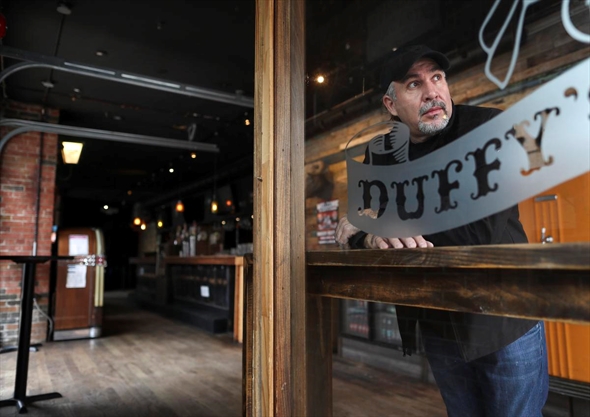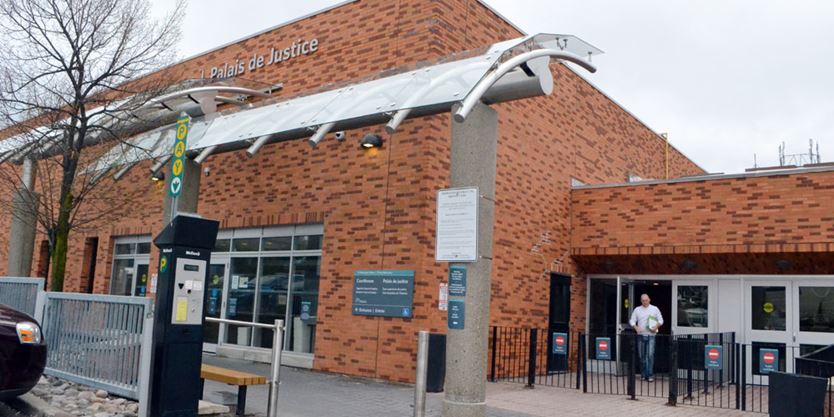Heather Scoffield: Chrystia Freeland will spend billions to fight COVID-19. This Toronto bar owner says there’s something he wants more than money
Until everyone is vaccinated, the best thing governments could do for tavern owner Harrison Mazis is give him clarity.
Even as Finance Minister prepares to roll out more aid for businesses in her mini-budget on Monday, and point to a huge multi-billion-dollar package of recovery money on the horizon, what Mazis says he needs most these days is a common understanding among government officials and authorities.
Duffy’s Tavern has stood in the same spot near Bloor and Dufferin for 70 years, one of the oldest licensed establishments in the city. But it’s barely standing right now, lurching through its second lockdown of the year and facing a bleak winter.

When Mazis heard the city’s mayor talk recently about giving restaurants and bars leeway to move outside, invest in patios and think about business differently, he did just that. He had boards and a tent structure set up along the side of his building, creating an outdoor eating area for his loyal, local clientele. Now, in addition to no customers, he is facing a pile of municipal infractions amounting to thousands of dollars in fines.
Freeland’s fiscal update on Monday will include more help for people like Mazis and other small business owners involved in hard-hit parts of the economy, such as air travel, tourism, accommodation and food services (but no full-blown airline bailout quite yet, for those keeping track at home).
It will also contain a range of estimates for the size of the stimulus package the federal government thinks will be needed for digging out of the recession, putting Canada in the same ballpark as other developed countries hoping to revive their economies. And it will set out some initial parameters for how it will be spent — while also committing to lots of public consultation between now and the federal budget in the spring.
But when Mazis jumped on to a riding-wide ask-me-anything Zoom call earlier this week with his MP, Julie Dzerowicz, he didn’t ask for money. He asked for coherence — a helping hand in steering through three levels of government trying, with an abundance of rules and money, to stop the virus and keep the economy from collapsing.
“We’re trying to do the right thing,” Mazis said afterwards in an interview. “We’re tired, we’re frustrated, we’re going broke, but we don’t know what to do. We’re handed a different set of bylaws every other day.”
At the federal level, there is heaps of money — hundreds of billions of dollars in subsidies, programs, credit and incentives for businesses and individuals alike. The that brings together Ottawa’s economic response shows 18 programs for individuals, 28 programs for business, 34 sector-specific supports, 11 programs for vulnerable groups, and six plans to transfer money to provinces.
Monday’s mini-budget will bring more — not just for businesses struggling to get through COVID-19 restraints, but also for broader pandemic challenges such as child care, vaccine efforts, long-term care and obtaining personal protective equipment.
All of this, of course, adds up to a bruising deficit that economists figure will be more than $400 billion this fiscal year. It will have to be whittled down quickly to be manageable, which means the COVID-19 supports will have to wind down by next summer, and stimulus spending will have to focus on fostering economic growth, which in turn will replenish government revenues.
But stimulus will also have to deal with more than just growth. Freeland is adamant that it address some of the underlying inequities exposed by the pandemic. Women in the workforce, visible minorities and gig workers have been slammed. She is also mindful about the government’s commitment to dramatically reduce greenhouse gas emissions and will likely have measures on Monday in hand for home retrofits and retraining of the workforce.
It’s a massive world-class response to a recession that has proven unpredictable in who it hurts and how badly, leading to a complicated and sometimes self-defeating web of bureaucracy.
Money for individuals was confusing at the beginning of the pandemic, as employment insurance morphed into the Canada Emergency Response Benefit, and now back again. It’s more streamlined now, but the next few months will bring their own layer of confusion as recipients try to sort through what they owe or are owed at tax time, says Carleton University’s Jennifer Robson, an associate professor in political management who has tracked the fine details of pandemic income support.
Dzerowicz and her staff find themselves frequently helping constituents track down forms, find the appropriate programs, and dealing with multiple levels of government on their behalf so that conflicts are stamped out and the money can flow to the right people.
That job won’t be any easier with Monday’s fiscal package. While the money is there in abundance, so is the virus, and so are all the various governments’ attempts to control both.
Muddling through to the other side of the pandemic will be expensive and difficult for all involved, not the least for Mazis. That vaccine can’t come soon enough.
Heather Scoffield is the Star’s Ottawa bureau chief and an economics columnist. Follow her on Twitter:




